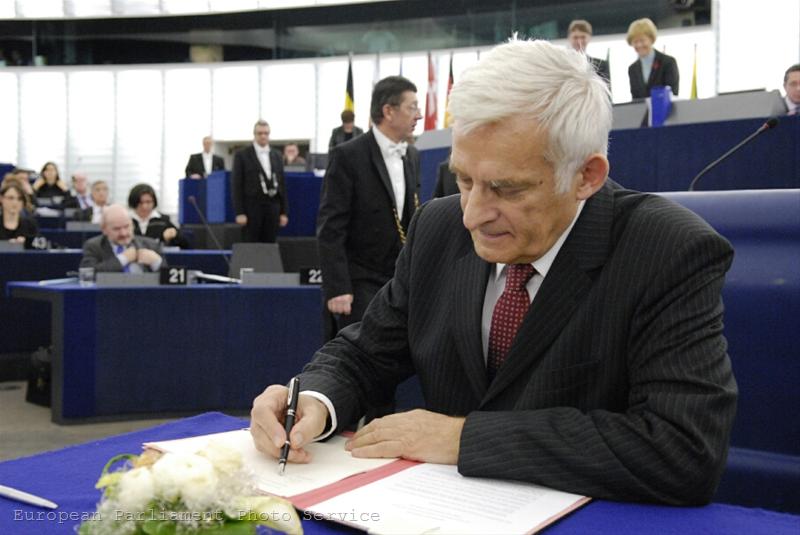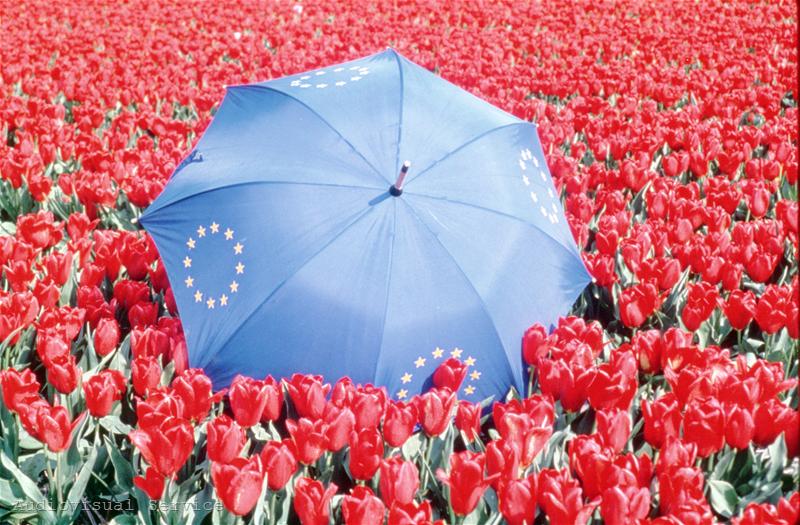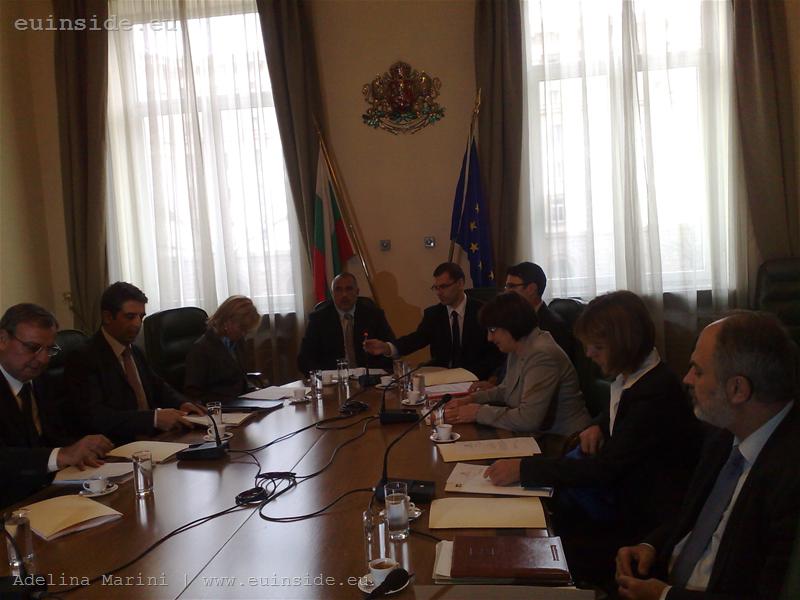The CAP and the EU budget
Adelina Marini, December 17, 2005
 One of the main problems in solving the disputes around the budget of the EU for the next 7-year period (2007-2013) is the Common Agriculture Policy (CAP) which takes almost half of the budget of the EU. This was the main topic of many other articles on euinside and that is why I offer you now an interview with Jack Thurston, one of the founders of the new Internet site where all known beneficiaries of farmers' subsides are published.
One of the main problems in solving the disputes around the budget of the EU for the next 7-year period (2007-2013) is the Common Agriculture Policy (CAP) which takes almost half of the budget of the EU. This was the main topic of many other articles on euinside and that is why I offer you now an interview with Jack Thurston, one of the founders of the new Internet site where all known beneficiaries of farmers' subsides are published.
- Policy of searching of its reason, this is how you call the CAP, but what is it exactly, historically, Mr. Thurston?
JACK THURSTON: Historically the CAP is a system for helping the agriculture, based on 2 processes. The first is imposing taxes on the import to the EU that keep the prices of certain agriculture products high in the Community and the second part are the direct payments for the farmers.
- In your publication you say that the CAP needs radical and not cosmetic changes. What should be the basis for those reforms?
JACK THURSTON: This should be the admission that the needs of Europe of agriculture are not the same as when the CAP was created in the 50s and 60s. Now 40 years later, the needs that are to be met are different. Probably the most important thing that we have to have in mind is that in 2007 the EU will have 27 member states, including Bulgaria, let's hope, which is a large pile of differences in agriculture. Therefore, a more flexible policy is necessary, capable to meet the needs of the rustic regions in Europe. And here we're not talking only about production of foods but about all issues, related to economy - environment, social problems etc. The way the CAP is structured, too much weight is put on the simple giving of money to the farmers.
- It seems though the the biggest problem is that politicians do not find appropriate arguments to explain their farmers the necessity of reforms because, as you know, their resistance is most fierce, especially in France?
JACK THURSTON: Yes, there are countries where farmers benefit quite well from the CAP. With the current structure of this mechanism, the farmers in France get 21% of all payments and it is not a surprise that some of them, especially in France, are worried by potential changes. But the important thing is that there are many other farmers, mostly in the newcomers, who get little share of the CAP and are not expected to receive more in the future. That is why, I think that politicians should reach all members of society to whom the CAP is a burden as well as to those people in the rustic areas who do not receive anything from the CAP.
- The last quarrels around the European budget showed that politicians are not ready to do this and it seems that the fight for the CAP turns into a battle between the West and the East, don't you think?
JACK THURSTON: I'm not sure that it is West vs. East. The states that have many times insisted for reforms in the last years are Britain, Sweden, Denmark, Italy from time to time, the Netherlands, Germany and even Portugal. So, there are many countries in the EU who for one reason or another defend changes. But the problem is that the states who want those changes, cannot agree among themselves what exactly those changes should be. While the countries that resists easily say that they do not want any reforms.
What I propose in my publication is the CAP to be restructured in a way that would allow individual states to be able in a larger extent to change their own agriculture, rustic or ecologic policies and adapt them to their own needs. In other words, if France produces something which is suitable for the France and Poland - for the Polish. Thus the financial resources on the CAP would be maintained only for states that are poor below average because the richer states like France and even Ireland can take the responsibility and the burden to help something they consider important.
- As I'm catching you in Hong Kong, where you participate in a series of discussions about removing the subsidies for production from Third World states, I would like to ask you do we have to make a connection between the CAP in Europe and the so called Doha Round?
JACK THURSTON: Yes, here in Hong Kong there was a big disappointment because there was almost no progress n helping to a larger extent the developing countries who are among the poorest in the world so that they can sell their production to the richer. One of the main problems is that Europe is not ready to propose changes in its agriculture policies so as to satisfy the developing countries like Brazil or India, the African states and Latin America who are among the poorest in the world.
So, definitely there is a connection and there will always be between the way the EU manages its policies and the way it leads its foreign trade policy. Unfortunately, the trade policy, directed toward more trade in the world is in conflict with the current CAP because it leads to more restrictions in the trade with agriculture goods. And it is high time that people and politicians in Europe consider the issue do we really need a world of free trade or we will close the door for the rest of the world. I think that more trade will lead to faster economic growth and prosperity for everyone.
- By the way, the talks about reforms in the EU are always led on the basis of Britain vs. the rest, i.e. that the UK is not quite aware is it with the EU or with the US which reminds me of what you write in your publication that for 20 years of diplomacy the UK is trying to trade removal of its rebate against a reform of the CAP. Why is this?
JACK THURSTON: I think that Britain has always had the tough task to present its visions about Europe, to some extent because many government so far were not dedicated to the European idea, especially the government of baroness Thatcher. I also think that Britain is having difficulties in creating allies with other countries and in making unions for the changes it wants. The rebate was to some extent traded as an exchange for a reform in the CAP. Besides, Britain finds it difficult, tactically, every time the time for the budget discussion comes, to be alone against everyone.
I think Toni Blair acted very wise when he drove the attention away from the issue about the rebate and, instead, directed it toward talking about a more sustainable budget that will make everyone believe that Britain needs this rebate. We have to admit that using this rebate is not an advantage because with each discussion you fall into isolation. Unfortunately, he did not manage to drive his arguments this time but we will see with the time that he is right to require reforms.
- You are the co-founder of the Internet site www.farmsubsidy.org/, where a network of journalists are publishing their investigations about how the farmers' subsidies are being spent in the EU. What are the main conclusions so far?
JACK THURSTON: This is a new project on which we work for 8 months now and so far we've been able to make the web-page. The idea is to give opportunity to the European citizens to see where there money is going. The CAP each year spends 44 bn euro and no one has the slightest idea where this money is going. So our project is designed to open the lid of this policy and to require from governments to provide us with lists of all those people who get money under the CAP. This information will be published in the Internet on our web page. We want to show that the CAP does not support small family farms, as many people think, because most of the money go to the largest and rich farms and companies and land owners, among which the English queen or the prince of Monaco Albert. Some of the richest people in Europe receive a large share of the money under the CAP. We hope that when people see that the budget is not been distributed in a fair way, they will insist on a more rational distribution of the money.
- What are the main obstacles in the investigations so far?
JACK THURSTON: That the governments are very cautious, they hesitate whether to provide us with this information or not. Sometimes they say that the farmers in a country will get angry that the information about how much money they get is being published and in others there are laws that forbid the revelation of information about individual citizens. In fact, the main obstacle are the governments in states like France and Germany, Poland, Finland. In Spain, as well as Britain, Denmark, Sweden, Slovenia and Estonia we received the information. But as many states provide this information this will increase the pressure on those who resist and in the end of the day we will have data for everyone. Then the European citizens will be able to look in our web page and see the truth about where their money is gone.
 | © European Parliament Photo Service
| © European Parliament Photo Service | © Audiovisual Service
| © Audiovisual Service | © euinside
| © euinside